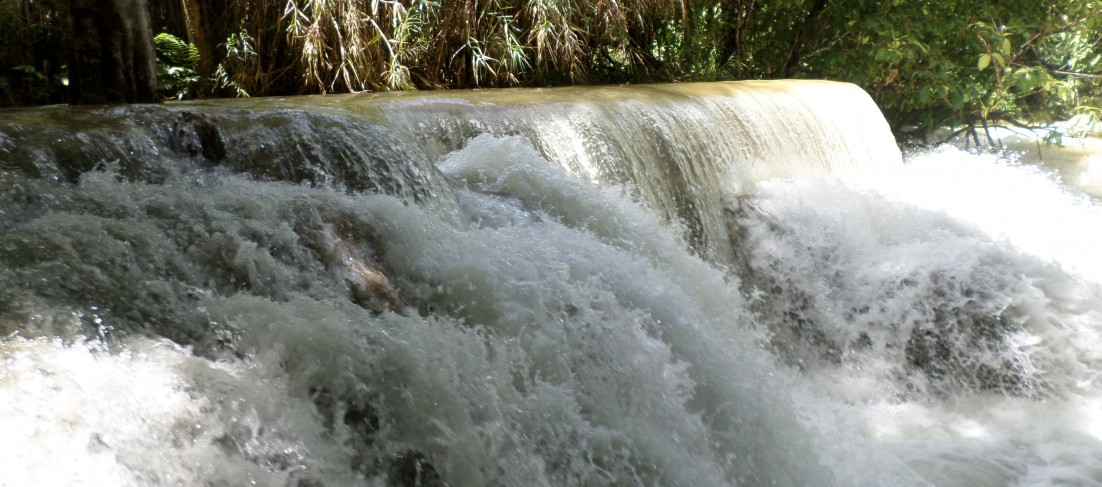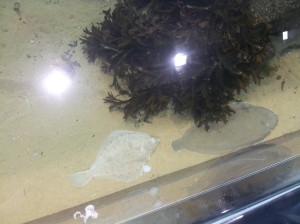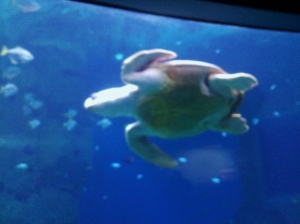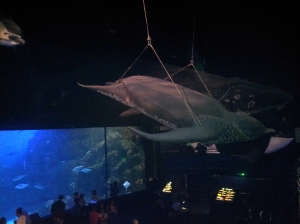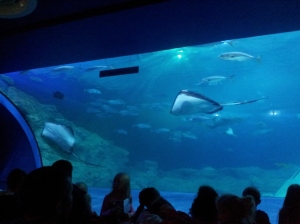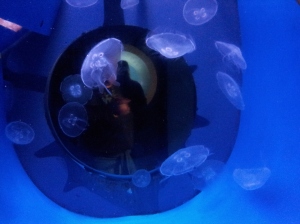After a morning at the National Lobster Hatchery (please see: https://jessicarabbitson.wordpress.com/2014/10/28/hes-your-lobster/ ) we headed on to the National Marine Aquarium in Plymouth. We had a really interesting talk from the head of education about the impact an aquarium can have on conservation. He introduced the field of conservation psychology…broadly speaking this involves attitudes towards conservation, motivations to get involved and people’s connection with nature. He is concerned that the phrase ‘increasing awareness’, which is so often bookmarked as the job of aquariums, is actually dangerously ineffective at producing any meaningful change once visitors leave the site. This may be because the general public tend to switch off when you mention conservation, and think you are going to start whining on at them to ‘try harder’.
This is where social marketing comes in. There is an idea, championed in the book ‘what makes people tick’, that people can (rather generally) be split into 3 groups based on core values: settlers, prospectors and pioneers. To stereotype, settlers are traditional family driven, union jack flying, pub going, NIMBY types. Prospectors are the flashy stylish type, who are driven by how well they appear to be doing and what other people think of them. Pioneers are more of a self-driven group however, and are likely to be the early adopters change, or a technology for example. The population has been estimated to have a fairly even split of these 3 value modes. In conservation we need to consider effectual behaviour change, so this concept may be useful. For example, pioneers may be the early adopters of change, the prospectors will follow if other people are doing it, and the settlers will eventually be dragged along when the behaviour becomes the norm. Some critics of this theory argue that separating personalities in this way may encourage selfish consumerism to continue. Please see Tom Crompton’s blog, valueandframes.org.
So how can an ethically minded business implicate these theories on the ground? The idea is that peoples are different, so we need to stop trying to provide an all encompassing solution. Appealing to different value groups in various ways might prove more fruitful. A book called ‘fostering sustainable change’ was suggested as a useful practitioners guide to going about this. Basically, identify the perceived barriers to change, and then try to remove them. It is evident the NGOs are using social marketing more and more for their campaigns.
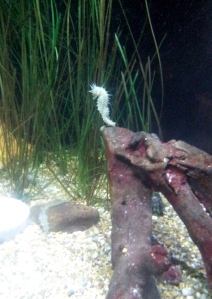
My favourite charismatic species; but will everyone respond in the same way to the elegance of a seahorse?
We had a tour of the aquarium and our guide explained the exhibits start off just focussing on our ‘connection’ with nature, for example rockpools and watersports. There are no strong conservation messages displayed at this early stage, as that may turn certain people off. Rather, there is more of an emphasis on ‘look at how awesome our British sea life is!’
As I walked round the aquarium the number of conservation based information boards did seem to increase, especially towards the Great Barrier Reef section at the end. There was also some ipads dotted around testing what kind of ‘fish’ you are, but really they are collecting data on the core value types I discussed earlier, under a fishy guise.
We were then shown the ‘reconnect’ project. This is exploring our relationship with seafood and trying to promote sustainable fishing. It works with the local area (hospitals, schools etc) to try and make us think about what is on our plates and the journey it took to get there. Afterwards I got stuck in a shark show (classic half term), where an excellent demonstrator was convincing the kids how cool sharks are!
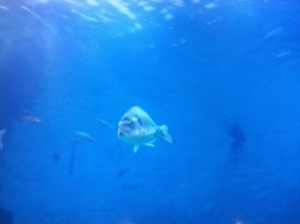
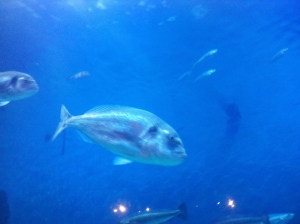
So is ‘raising awareness’ always as effective and important as we think it might be? How can we measure resultant behaviour change? How can we tailor conservation messages to hit home? How can we implicate sneaky advertising techniques for a cause that is more important than lipsticks and shampoo? After all, if you can’t beat them, join them. I went home with lots to think about, but you can be sure, there is certainly more behind the glass tank front than meets the eye.
